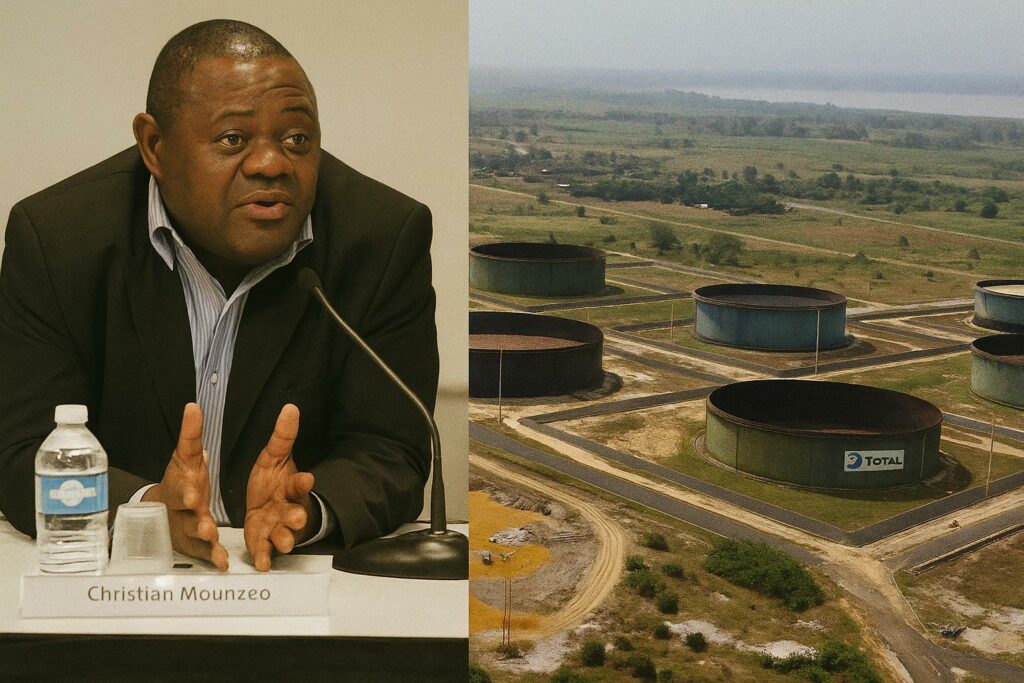A strategic conversation emerges in Pointe-Noire
Behind the discreet façade of the Hôtel Elaïs, overlooking the Atlantic swells that first carried prospectors to Congo-Brazzaville’s shores, a two-day conclave gathered on 26-27 June 2025. Convened by Rencontre pour la paix et les droits de l’homme (RDPH) under the stewardship of its president, Christian Mounzéo, the roundtable sought to examine a deceptively simple question: how can a hydrocarbon-dependent economy secure prosperity beyond the era of easy barrels? Representatives of energy companies, coastal communities, government agencies and international partners accepted the invitation, aware that Pointe-Noire’s refinery skyline symbolises both economic lifeline and potential constraint.
Fiscal reliance and the imperative of diversification
Petroleum still provides roughly half of Congo’s public revenue and almost 80 % of exports, according to the World Bank’s 2024 Country Update. While new offshore fields such as Marine XXII offer temporary relief, production peaked a decade ago and natural decline curves are inexorable. Participants acknowledged the budgetary sensitivity: a ten-dollar swing in Brent prices can alter national fiscal space by nearly one percent of GDP. In the words of a senior Treasury official present, “Diversification is no longer a slogan; it is macro-prudential risk-management.” Yet translating consensus into action has proven elusive since similar alarms were sounded in the late 1980s.
International frameworks as catalytic levers
Much of the debate revolved around the Beyond Oil and Gas Alliance (BOGA), a coalition spearheaded by Denmark and Costa Rica that assists willing states in phasing out upstream licensing. Congo has observer status at present, but RDPH argues that full membership could unlock technical support for renewable deployment and carbon-pricing design. Delegates from the Ministry of Hydrocarbons contended that integration must safeguard existing contractual stability, yet signalled openness to a calibrated timeline, noting the government’s signature of the African Continental Free Trade Area can amplify non-oil export opportunities. The African Development Bank’s 2025 Green Growth Framework was cited as an additional vehicle for concessional finance.
Climate vulnerability intersects with national planning
The roundtable repeatedly returned to coastal erosion, saline intrusion and erratic rainfall patterns that already strain agriculture in Kouilou and Niari. A meteorologist from the National Agency for Civil Aviation and Meteorology underscored that Congo’s mean temperature has risen 1.2 °C since 1970 (UNEP 2023), rendering adaptation a twin pillar alongside mitigation. Consequently, the gathering proposed embedding an explicit climate-risk matrix into the forthcoming Plan national de développement 2026-2030, thereby aligning local investments with commitments under the Paris Agreement’s updated Nationally Determined Contribution.
Economic corridors beyond hydrocarbons
Pragmatic pathways discussed included boosting the Pointe-Noire–Brazzaville multimodal corridor to lower logistics costs for timber, manganese and agricultural produce; expanding gas-to-power capacity to stabilise electricity and attract light manufacturing; and leveraging biodiversity credits from the vast Lac Télé-Lac Tumba landscape. A representative of an international oil major confirmed that several decommissioning funds could be repurposed for vocational retraining in solar installation and agribusiness, provided regulatory clarity is enacted. Civil-society voices urged inclusive consultation so that riverine communities do not experience the transition as yet another top-down extraction of value.
Charting a consensual roadmap
By the close of deliberations, facilitators distilled recommendations into a preliminary roadmap: establish an inter-ministerial council on the post-oil economy by early 2026; publish, within twelve months, a taxonomy of transitional activities eligible for green bonds; and pilot community-owned solar farms in Hinda and Madingo-Kayes before 2028. These steps, subject to Cabinet endorsement, echo the International Energy Agency’s guidance that late-starter producers can still capture diversification dividends if policy certainty precedes revenue decline. Christian Mounzéo hailed the outcome as “a pragmatic compromise between fiscal caution and ecological responsibility.”
Diplomatic resonance and regional implications
Observers from neighbouring Gabon and Angola attended as silent witnesses, mindful that Congo’s choices could influence investment flows across the Gulf of Guinea. The Economic Community of Central African States is preparing a regional green-hydrogen study, and a seasoned diplomat from Cameroon confided that Pointe-Noire’s exercise in multistakeholder dialogue may serve as a template. International partners, including the European Union and the United Arab Emirates’ Masdar, signalled willingness to co-finance feasibility assessments, provided local content provisions remain robust.
A measured optimism suffuses the outlook
Congo-Brazzaville’s hydrocarbon saga is far from its final chapter, yet the narrative is evolving toward a more diversified plotline. The Pointe-Noire roundtable did not purport to resolve every ambiguity; rather, it marked a deliberate shift from rhetorical acknowledgment to procedural design. Whether the proposed roadmap matures into legislated policy will depend on sustained political will, disciplined public finance and the engagement of communities that have long lived in the shadow of flare stacks. For now, the dialogue has furnished a credible foundation upon which the Republic can envisage prosperity that is not hostage to the price of a barrel.

